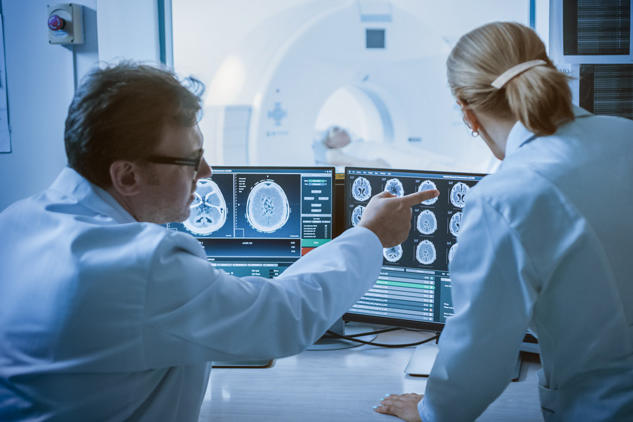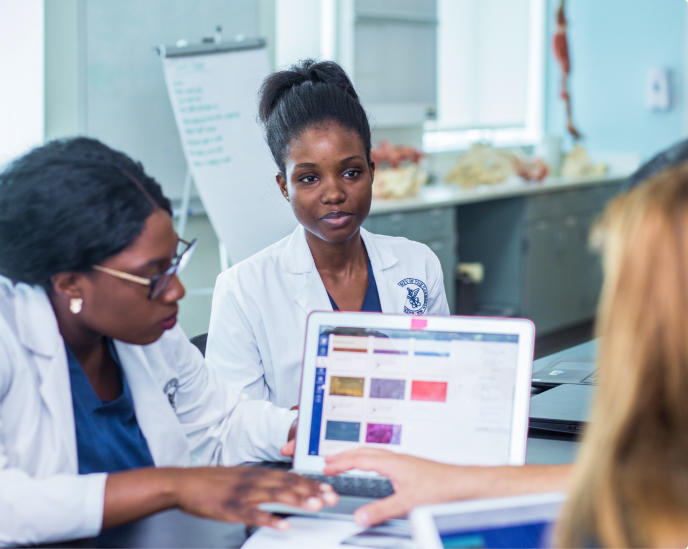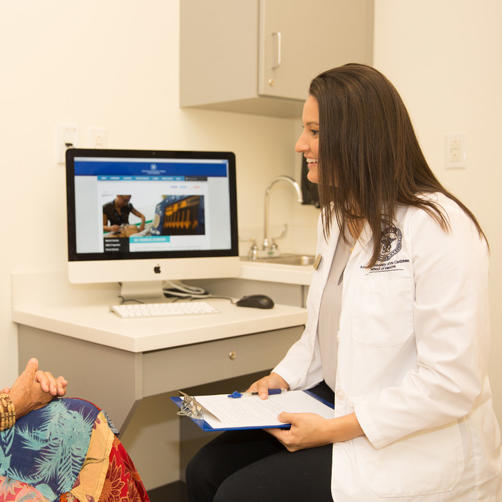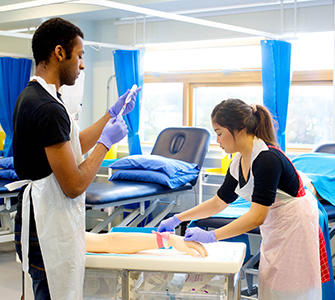Is there any organ more fascinating than the human brain? At just about 3 pounds, it makes up a mere 2 percent of adult body weight. Yet it contains nearly 100 billion nerve cells, called neurons, arranged in a network much more complex than any computer system ever built. Those neurons consume a whopping 20 percent of the body’s total energy output, forming new connections, trimming old ones, and conducting electrochemical impulses that control and regulate the entire body.
What is a neurologist and what does a neurologist do? A neurologist is a physician trained to diagnose, analyze, and treat problems of the nervous system. The word neurology comes from the Greek word for nerves.
The nervous system includes the brain and spinal cord, known together as the central nervous system. It also includes the peripheral nervous system, some 45 miles of nerves that connect the central nervous system with the rest of the body.
As wondrous as the nervous system is, its disorders can be equally complex and mysterious. What does a neurologist treat? A neurologist may treat problems as common as headaches or as rare and daunting as epilepsy, multiple sclerosis, and Parkinson’s disease.
Neurologists are often critical in recovery from stroke, which according to the Centers for Disease Control affects nearly 800,000 Americans each year. Neurologists are also on the front lines of the battle against Alzheimer’s disease and other forms of dementia. Neurologists are among those leading the charge to protect against concussions in sport and reduce long-term brain injuries.
In many ways, the brain and nervous system are at the frontier of modern medicine. Each day seems to bring new discoveries about how they work and the promise of new treatment for neurological disorders. In addition to treating patients, a career in neurology offers the opportunity to be a part of this exciting research.
WHAT DOES A NEUROLOGIST DO?
Now you know the answer to the question, “What is a neurologist?” But what does a neurologist do? Neurologists often see patients complaining of such symptoms as headaches, dizziness, loss of memory or balance, confusion, and chronic numbness or pain. The neurologist must work like a detective, connecting subtle and disparate clues to diagnose the underlying condition.
A typical neurological evaluation begins with a review of the patient’s medical history and a physical examination. The neurologist may use lights or reflex hammers to test the body’s response to basic stimuli. Simple tests may also be administered to assess motor skills, balance, and coordination, along with memory and other cognitive abilities. The astute neurologist may even gather clues from the patient’s speech and gait.
The neurologist may order a number of laboratory tests to assist in making or confirming a diagnosis or monitoring the patient’s condition. A detailed image of the brain and other tissues can be produced through a computed tomography (CT) scan or magnetic resonance imaging (MRI).
The nervous system works in large part through the transmission of electrical impulses, and a number of tests are used to assess electrical activity within the system. An electroencephalograph (EEG) measures and records electrical activity in the brain. A nerve conduction study can measure how quickly an electrical impulse travels along a nerve. Electromyography tests analyze electrical exchanges between the nerve endings and muscles.
In some cases, a neurologist may order a lumbar puncture, sometimes called a spinal tap. In this procedure, medical professionals remove and analyze a sample of the fluid that surrounds the brain and spinal cord.
What does a neurologist do to treat conditions once they are diagnosed? A neurologist generally treats patients using medication, physical therapy, and rehabilitation. Neurologists do not perform brain surgery. In cases where surgery is required, the neurologist may work closely with a specialized surgeon called a neurosurgeon.
HOW TO BECOME A NEUROLOGIST
The path to becoming a neurologist begins with a four-year undergraduate degree. The next step is four years of education at an quality medical school such as the American University of the Caribbean School of Medicine (AUC).
Medical school may be followed by a one-year internship in medicine or, in some cases, a two-year internship in pediatrics. Finally, the aspiring specialist must undergo a three-year residency in neurology, practicing the specialty under the watchful eye and tutelage of trained professionals.
How long does it take to become a neurologist? Altogether, that’s about 12 years of training. Not bad for one of the most highly regarded specialties in medicine.
How long does it take to become a neurologist? Altogether, that’s about 12 years of training. Not bad for what many consider one of the most highly regarded specialties in medicine.
Some neurologists may continue their training even further, pursuing a fellowship in one of neurology’s many subspecialties. Examples include:
- Brain injury medicine
- Geriatric neurology (working with the elderly), including the treatment of dementia
- Neurodevelopmental disabilities, including learning disorders
- Pain medicine
- Pediatric neurology (working with children)
YOUR CAREER AS A NEUROLOGIST
As a profession, neurology tends to attract people who are thoughtful, intellectual, and curious. A neurologist must also be detail-oriented and skilled at noticing subtle symptoms. Neurological disorders can be chronic, debilitating, and difficult to treat. Neurologists who deal with patients must therefore be confident, composed, sincere, and compassionate.
Many neurologists work in hospitals, clinics, or private practice. They spend the day seeing and evaluating patients, ordering and reviewing tests, and putting together treatment plans. Neurology can be a high-pressure specialty. Clinical neurologists tend to work fairly long hours and must share night and weekend on-call duties with others.
Neurology can also be a highly rewarding specialty. It offers the opportunity to treat a variety of fascinating conditions and to work with other specialists in multidisciplinary settings. Part of a neurologist’s job is to keep up with new technologies and the latest medical treatments.
Many neurologists are involved in research, working in labs run by universities, government, or private industry. Research neurologists spend their time planning and conducting experiments and trials. They may be involved in developing novel pharmaceuticals and other therapies. Research also offers the opportunity to teach, travel, speak, and share their findings with the rest of the medical community.
The job outlook for neurologists is good. According to the U.S. Health Resources and Services Administration, by 2025 the demand for neurologists will outstrip the supply. A factor driving demand for neurologists is population growth. The population is also aging, increasing the demand for neurologists to treat stroke, dementia, and neurodegenerative disorders associated with age.
Now that you know the answer to the question “What is a neurologist?” are you ready to pursue an in-demand career at the frontier of modern medicine. Apply for admission at AUC School of Medicine.
Related Links:





